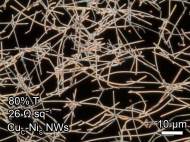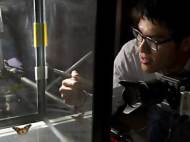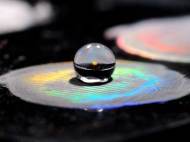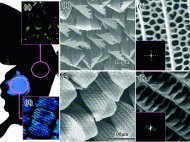Hydrogen-powered utility vehicle being tested in Switzerland
 You can often read about hydrogen powered vehicles that could be used in near future, but there was a project active since 2009 that intended to take hydrogen drives out of the laboratory and onto the streets in order to gain experience on using them under practical conditions. The subject of the pilot trial is a hydrogen powered street cleaning vehicle that has been undergoing testing on the streets of Basel.
You can often read about hydrogen powered vehicles that could be used in near future, but there was a project active since 2009 that intended to take hydrogen drives out of the laboratory and onto the streets in order to gain experience on using them under practical conditions. The subject of the pilot trial is a hydrogen powered street cleaning vehicle that has been undergoing testing on the streets of Basel.
“It became clear relatively quickly that the fuel cell system, which had been developed as a one-of specially for the project, was not yet ready for use in a real-life setting”, said project leader Christian Bach, head of Empa’s Internal Combustion Engines Laboratory. “On top of that, the various safety systems kept interfering with each other and bringing everything to a halt.”
Dubbed Fuel Cell System Mk 2, the system has been in operation since the summer of last year and has achieved targets both in terms of energy consumption and performance. Researchers from Empa and the Paul Scherrer Institute (PSI) cooperated with the Environment and Energy Department, vehicle manufacturer Bucher Schoerling, the electric drive specialist Brusa, and the hydrogen manufacturer Messer Schweiz to develop and maintain the vehicle. After a couple of failures, the repair took a while since all its components are custom-made and require long delivery times.
The vehicle was used by city of Basel cleaning services and, despite a few setbacks, it has been running reliably for the past three months. According to information the researchers published, the vehicle consumes less than half the fuel of its contemporaries. In figures: instead of 5 to 5.5 liters of diesel per hour (equivalent to an energy consumption of 180-200 MJ per hour) the hydrogen powered vehicle needs only 0.3 to 0.6 kg of fuel per hour (that is, 40-80 MJ per hour). And in terms of CO2 emissions, the new vehicle performs about 40% better than a diesel powered equivalent, even when the hydrogen is produced by the steam reforming of natural gas using fossil fuels. If the hydrogen was produced using energy from renewable sources then the CO2 reduction would be even greater.
Refueling was done by the drivers themselves at a mobile, easy-to-use hydrogen fuel station. The refueling stations and garages where the vehicles are parked are fitted with a hydrogen monitoring system, but since it has been in use there has not been a single problem caused by hydrogen leaks. An additional advantage is the fact that the fuel cell powered vehicle is much quieter than a diesel vehicle, both when driving to the area to be cleaned as well as during cleaning itself, even when the suction system and brushes are operating. This leads to a noticeable reduction in noise, particularly for the drivers.
Aside the fact that this kind of vehicle currently costs around three times more compared to a conventional one, these vehicles suffer from a typical weakness of electrical drives on cold days. Since there is less waste heat from the fuel cell and the electric motor, the driver’s seat had to be fitted with a heater unit for use on cold. The test is taken to St Gallen for further practical trials.









Hydrogen is the future energy carrier.
Dr.A.Jagadeesh Nellore(AP),India
E-mail: anumakonda.jagadeesh@gmail.com
I visit everyday some sites and sites to read posts, but
this web site offers quality based posts.